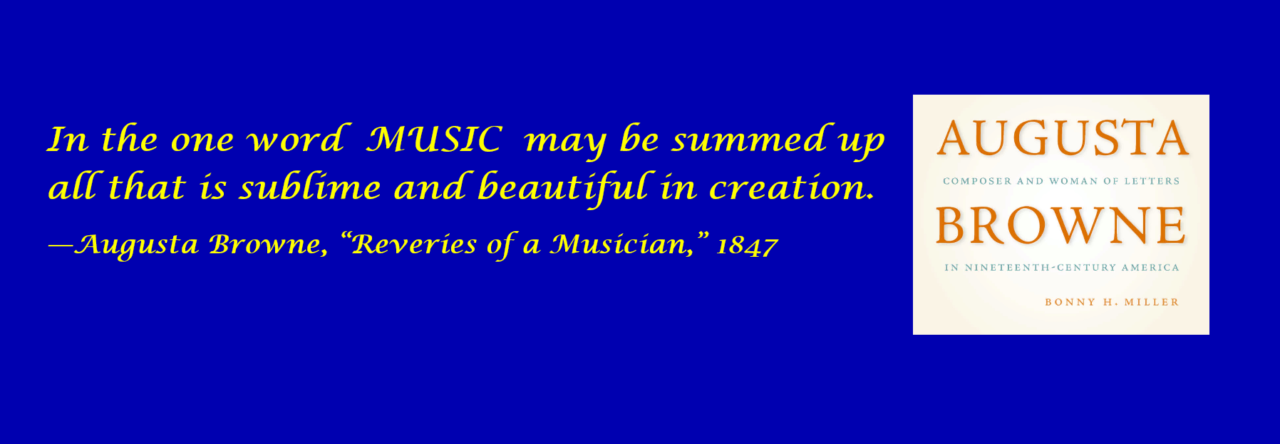Women’s History Month March 2020 is an ideal time to highlight American composer and author Augusta Browne. It’s now 200 years since Augusta Browne was born in Dublin, Ireland, and came to North America as an infant. And it’s now 100 years since the passage of the Nineteenth Amendment to the United States Constitution that guaranteed American women the right to vote. What better time to find inspiration in a forebear for women musicians as they seek their own paths in culture and commerce?
Augusta Who?
Who was Augusta Browne? Augusta Browne composed and published music from her teenage years until her death in 1882. She produced some two hundred works of music over her lifetime and also authored short stories, poems, many essays, and two books. Browne energetically pursued publication of music and prose during the Victorian era despite strict codes of conduct and gendered roles for women. I first encountered her music in one antebellum magazine after another, beginning with Godey’s Lady’s Book, followed by the Columbian Magazine, then in a dozen other periodicals. Her entrepreneurial attitude leapt out from magazine pages. She was a go-getter during an era we do not usually associate with career women.
Why Augusta Browne?
What drew me to Augusta Browne? Her modern aspects: entrepreneurship, networking, and use of social media in her lifetime. Her enterprise was a magnet in an era when we know few stories about businesswomen. But it seems like my subject chose me. Her story would not let me go. I got to know her bit by bit, over many years as fragments of evidence emerged. She has become a colleague, like many music teachers I’ve valued as friends and mentors in my profession. Augusta Browne’s story speaks to me as an American, as a musician, and as a woman.
A Role Model 150 Years Ago
Browne pursued the same avenues of teaching, performing, writing, and music publishing as many of today’s musicians (including myself), but she was doing these things 150 years ago. Browne published in a competitive sheet music industry that was constantly churning out new numbers for people to enjoy at home as they played and sang for entertainment, instruction, or camaraderie. Her spirited piano music and lyrical songs cultivate our sense of musical life in the United States during the antebellum era, the Civil War, and Reconstruction. The wider significance of Augusta Browne’s story is that it enables people to reconnect with their own family heritage of music making.

You can see and download a nineteenth-century imprint of The American Bouquet at https://babel.hathitrust.org/cgi/pt?id=mdp.39015096699858&view=1up&seq=1
©Bonny H. Miller, All Rights Reserved 2020
